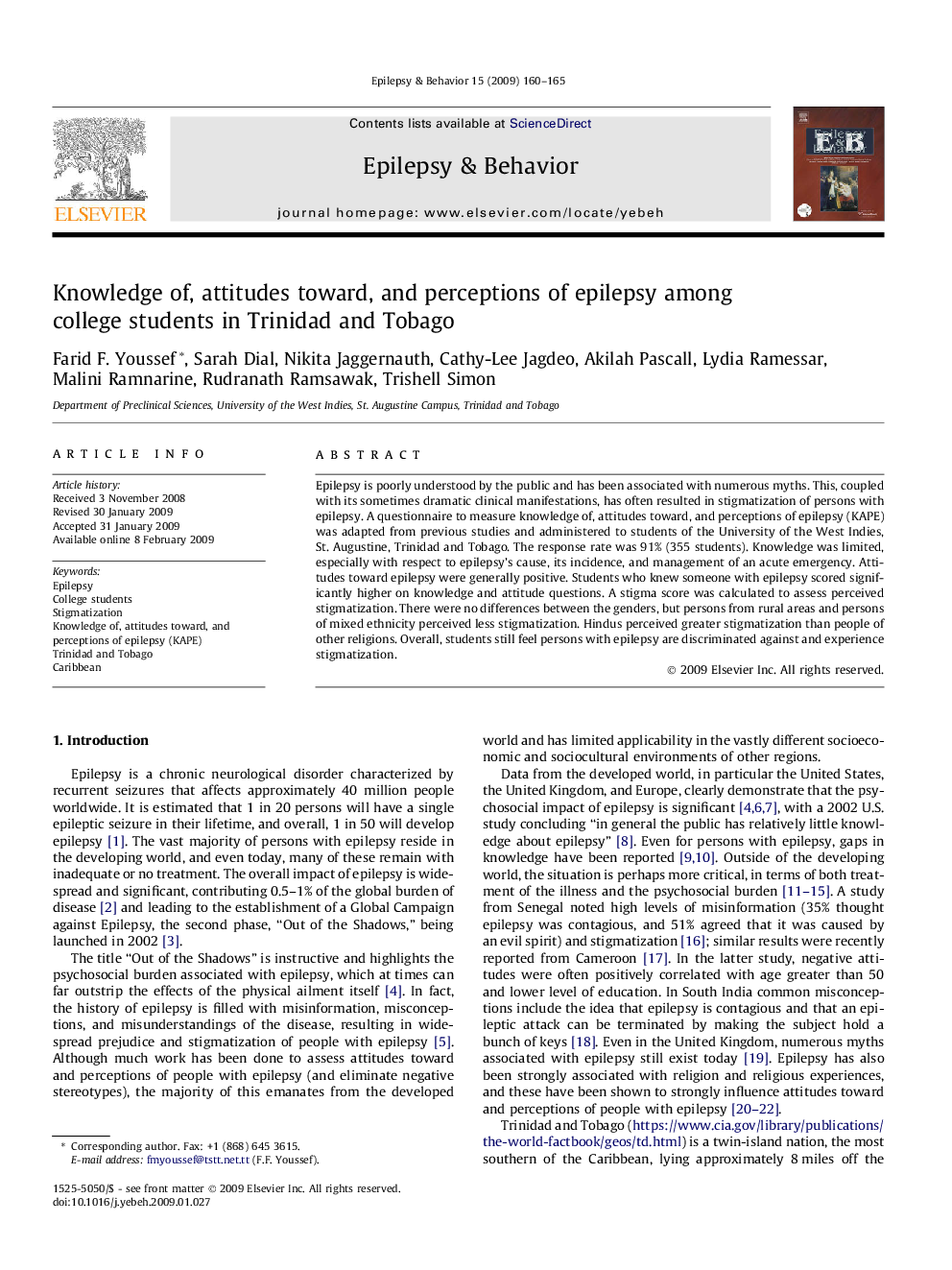| Article ID | Journal | Published Year | Pages | File Type |
|---|---|---|---|---|
| 3050649 | Epilepsy & Behavior | 2009 | 6 Pages |
Epilepsy is poorly understood by the public and has been associated with numerous myths. This, coupled with its sometimes dramatic clinical manifestations, has often resulted in stigmatization of persons with epilepsy. A questionnaire to measure knowledge of, attitudes toward, and perceptions of epilepsy (KAPE) was adapted from previous studies and administered to students of the University of the West Indies, St. Augustine, Trinidad and Tobago. The response rate was 91% (355 students). Knowledge was limited, especially with respect to epilepsy’s cause, its incidence, and management of an acute emergency. Attitudes toward epilepsy were generally positive. Students who knew someone with epilepsy scored significantly higher on knowledge and attitude questions. A stigma score was calculated to assess perceived stigmatization. There were no differences between the genders, but persons from rural areas and persons of mixed ethnicity perceived less stigmatization. Hindus perceived greater stigmatization than people of other religions. Overall, students still feel persons with epilepsy are discriminated against and experience stigmatization.
